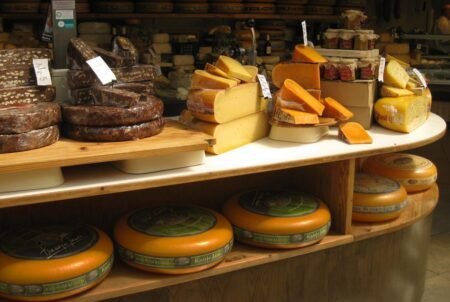The EU Council endorsed on 20 November 2017 the co-legislators’ agreement on the new rules on organic production and looks forward to the final steps leading to the adoption of the new Regulation. Once adopted, the new rules will enter into force on 1 January 2021. This will give enough time for producers, operators and trade partners to adapt to the new framework.
Advertisement
Why do we need a new set of rules for the organic sector?
Many of the current rules are more than 20 years old, and need to be updated to reflect the major changes that have taken place in the EU organic sector over the last two decades. Organic is no longer a niche part of the EU agri-food sector as it was when the current rules were first drawn up. In fact it is now one of the most dynamic sectors of EU agriculture, with the amount of land used for organic farming growing at around 400,000 hectares a year. The organic market in the EU is worth around 27 billion, some 125% more than ten years ago. The patchwork of rules and derogations currently in place do not give sufficient certainty and security to this highly important sector of European agriculture, and the simpler, more harmonised approach of the new Regulation should help it grow even faster as a result.
What is the added value of this reform and what will change?
Fairness is going to be ensured for EU organic farmers and the EU organic logo is going to offer consumers the same quality guarantees all over Europe. Given the premium price most consumers pay for organic food, this quality guarantee is extremely important.
The main improvement is the introduction of one set of EU-wide rules covering the whole EU organic sector. The old rules allowed an à la carte system of exceptions, sometimes at the level of a single producer. The new rules take on board the need for flexibility that these derogations accommodated in the past duly justified exceptions, such as for example the temporary replacement of an organic ingredient by a non-organic one in cases of limited stocks, will still be permitted but they will now be limited in time, regularly assessed and if necessary applied to all producers, ensuring fair treatment for all. The same rules will apply to all organic producers and products.
This single set of rules is going to apply also to non-EU farmers who export their organic products to the EU market. It will replace today’s 60+ different standards considered equivalent that apply to imported organic foods. At the moment, we are in a situation where different standards may apply to producers within the same country when the latter has no equivalence arrangement with the EU just because certification bodies set their own standards. Conformity to the EU single set of rules will replace the principle of equivalence. It brings important improvements in relation to trade, the main one being that there will be now a level-playing field between operators from the EU and from non-EU countries.
The scope of the rules has been extended to cover a range of new products such as salt, cork and essential oils. It will also be possible in the future to add new products to respond to the development of the sector and to consumers’ demands, providing additional opportunities for producers.
The new Regulation brings simplification for farmers. For example, small farmers now will be able to choose group certification which will reduce their certification costs and make it easier for them to join the organic scheme.
New opportunities are also going to be created by the opening of a new market for organic seeds and other plant reproductive material with a high level of genetic biodiversity. This will improve biodiversity, crop sustainability and will boost innovation. Resistance to pests and diseases will be improved and better adaptation to local conditions will be a focus.
Will these new rules mean more controls and more red tape for organic producers and certification bodies?
Quite the opposite. The new rules set a balance between the need to carry out controls to ensure consumer confidence in the sector and the burden that this places on farmers and competent authorities alike. Controls are carried out at Member State level, and are unannounced, ensuring their effectiveness. The standard procedure is to carry out annual controls, but the new rules acknowledge that this is not necessarily always needed for established organic producers. For the producers having a clean record after three consecutive years of annual controls, national authorities could decide to control them only once every other year. This will reduce red tape both for farmers and for national administrations.
Are pesticides allowed in organic food?
Organic rules are very clear: certified producers can in no way use any unauthorised substances such as pesticides on their crops. This has always been the case and does not change with the new rules.
What the new rules set out are the precautionary measures that operators must take to reduce the risk of accidental “contamination” by pesticides used in conventional crops grown next to organic ones. National authorities are in charge of controlling these measures. Consumers should be able to fully trust that no pesticides have been actively used in the production of the products bearing the EU organic logo and that every possible precaution has been taken to reduce the slight risk of pesticides being accidentally present.
In cases where there are claims that organic products contain pesticides, national authorities are obliged to investigate. Such claims must be clearly substantiated however in order to trigger a formal investigation. The investigation should serve to determine the source and the cause of the presence of such substances, and include any appropriate method to eliminate the suspicion without any unnecessary delay.
The Commission will assess the situation within four years following the date of application of the new Regulation, i.e. 1 January 2021. This will allow a comprehensive analysis of national rules and practices concerning thresholds for non-authorised substances and will assess the way forward on that issue.
What do the new rules mean for imported organic products?
The new Regulation not only covers EU organic products but also products imported into the EU from other countries.
As regards recognised control bodies, the new rules will be the same for both producers in the EU and those in third countries wanting to sell into the European Union single market. Rather than producing to standards considered equivalent to the EU rules, producers in third countries must now comply with the same set of rules as those in the EU. This is a move from the principle of equivalence to the principle of conformity. This not only creates a level playing field for all producers, who can be assured that they are all obliged to comply with the same set of high standards, but also reassures consumers that organic products sold in the EU, whether produced there or not, meets the same quality standards.
Until now, imported products were certified in accordance with the national rules of equivalent third countries or in accordance with some of the approximately 60 different sets of rules from control bodies which the EU recognised as equivalent to its own organic rules. For example, some control bodies allowed the use of certain plant treatment products which are not used in the EU (in cases, for example, where they treat diseases that are not present in Europe and for which there are therefore no European rules).
What will happen to the agreements on organics that the EU has in place with other countries?
The EU has recognised several non-EU countries (so-called third countries) as having equivalent organic production rules and control systems. Some third countries such as Canada, Japan, the United States, Tunisia, New Zealand, etc have also recognised the EU as equivalent through equivalence arrangements or agreements, meaning that both parties have recognised each other’s organic production rules and control systems as equivalent under their respective rules. These recognitions enable European consumers to choose from a wide range of organic products whilst providing export opportunities for EU producers.
The existing arrangements or agreements in place will have to accommodate the new rules whenever relevant within a reasonable timeframe.
Existing recognition of equivalency of third countries that are currently outside the scope of reciprocal equivalence arrangements will have to be transformed into reciprocal trade agreements to give a more solid legal framework for operators. The transitional period of 5 years ensures that both the EU and its partners will have time to negotiate a mutually beneficial agreement.
What do the new rules mean for organic production in greenhouses?
Nourishing plants primarily through the soil ecosystem is one of the principal requirements of organic production. The new Regulation confirms the link with the soil as a basic principle, and as such the use of “demarcated beds” is not considered compatible with broader organic principles.
The new Regulation will however allow producers in the Member States where the practice has already been authorised for organic agriculture to continue to use greenhouses for a limited period of 10 years. The Commission will present a report on the use of demarcated beds in greenhouses 5 years after the date of application of the new Regulation that may be accompanied, if appropriate, by a legislative proposal.
Will the rules apply to all organic products, including processed products?
The new organic Regulation will apply to the live and unprocessed agricultural products, including seeds and other plant reproductive material and processed agricultural products used as food and feed. Processed products could be labelled as organic only if at least 95% of the agricultural ingredients are organic.
Source: European Commission







